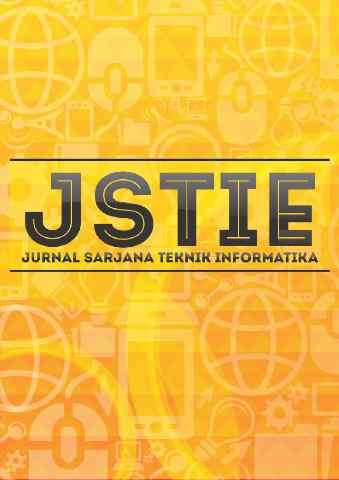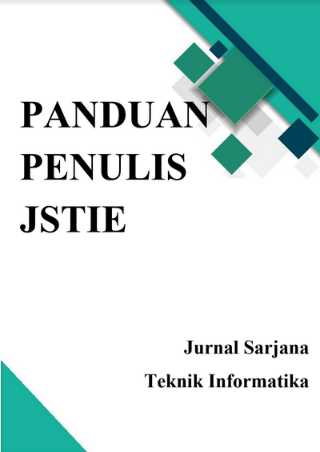Aplikasi Penilaian Studi Proyek Independen Kurikulum Merdeka Belajar Kampus Merdeka Berbasis Android
DOI:
https://doi.org/10.12928/jstie.v11i2.24845Keywords:
mobile, MBKM, sistem penilaian, task centered system design, waterfallAbstract
Kementerian Pendidikan dan Kebudayaan membuat kebijakan baru dibidang pendidikan yaitu Merdeka Belajar Kampus Merdeka (MBKM) dengan dilandasi oleh Peraturan Menteri Pendidikan dan Kebudayaan Republik Indonesia No.3 Tahun 2020 tentang Standar Nasional Pendidikan Tinggi. Model penilaian yang berbeda dari sebelumnya mengakibatkan pekerjaan menjadi lama, dan belum tersedianya sistem informasi dan sistem penilian otomatis untuk mendukung kegiatan belajar terutama pada program Studi Proyek Independen. Task Centered System Design (TCSD) merupakan sebuah metode yang digunakan untuk merancang user interface dari sebuah sistem. Perancangan sistem menggunakan metode waterfall sebagai alur pengerjaan dari aplikasi kemudian mnggunakan TCSD sebagai perancangan user interface. Penelitian ini menghasilkan sebuah aplikasi sistem penilaian yang dapat membantu dalam melaksanakan kurikulum MBKM. Aplikasi akan melalui dua pengujian yaitu pengujian blackbox dan System Usability Scale (SUS) dengan nilai minimal SUS yang harus dicapai adalah 80.References
A. Gilchrist, “Industry 4.0: The Industrial Internet of Things,”, Apress Barkeley, 2016.
F. Nahdi and H. Dhika, “Analisis Dampak Internet of Things (IoT) pada Perkembangan Teknologi Masa yang Akan Datang,”, Journal of Information Technology, vol.6, no.1, pp. 33-40, 2021.
Peraturan Menteri Pendidikan dan Kebudayaan Nomor 3 tahun 2020 tentang Standar Nasional Pendidikan Tinggi, Jakarta, 2020.
E. Simatupang and I. Yuhertiana, “Merdeka Belajar Kampus Merdeka terhadap Perubahan Paradigma Pembelajaran pada Pendidikan Tinggi: Sebuah Tinjauan Literatur,”, Jurnal Bisnis, Manajemen dan Ekonomi, vol. 2, no. 2, pp. 30-28, 2021.
N. N. Nofia, “Analisis Tantangan Implementasi Kebijakan 'Merdeka Belajara Kampus Merdeka' Pada Perguruan Tinggi Islam Negeri di Indonesia,” Jurnal Manajemen Pendidikan Islam UIN Imam Bonjol Padang, vol. 1, no.2, pp. 61-72, 2020.
M. Shulthoni, N. M. Saad, S. Kayadibi, and M. I. Ariffin, “Outcomes Based Education,”, spm.unpad.ac.id, vol. 3, pp. 2460–6618, 2018.
W. Yulita, M. H. Algifari, D. Rinaldi, and M. Praseptiawan, “Analisis dan Rancangan User Experience Website OAIL Menggunakan Metode Task Centered System Design (TCSD),”, Jurnal Sains Komputer dan Informatika, vol. 5, no. 2, pp. 879-886, 2021.
N. Sopiah and A. Muzakir, “Penggunaan Metode TCSD (Task Centered System Design) dalam Pembuatan Website Rekam Medis pada Rumah Sakit Pelabuhan Palembang,”, Jurnal MATRIK, vol. 18, no. 2, pp. 101-112, 2016.
K. Petersen, C. Wohlin, and D. Baca, “The Waterfall Model in Large-Scale Development,” International Conference on Product-Focused Software Process Improvement, vol. 32, Springer, 2009.
Y. Bassil, “A Simulation Model for the Waterfall Software Development Life Cycle,”, International Journal of Engineering & Technology, vol. 2, no. 5, pp. 1-7, 2012.
Downloads
Published
Issue
Section
License
License and Copyright Agreement
In submitting the manuscript to the journal, the authors certify that:
- They are authorized by their co-authors to enter into these arrangements.
- The work described has not been formally published before, except in the form of an abstract or as part of a published lecture, review, thesis, or overlay journal. Please also carefully read Journal Posting Your Article Policy.
- The work is not under consideration for publication elsewhere.
- The work has been approved by all the author(s) and by the responsible authorities – tacitly or explicitly – of the institutes where the work has been carried out.
- They secure the right to reproduce any material that has already been published or copyrighted elsewhere.
- They agree to the following license and copyright agreement.
Copyright
Authors who publish with Jurnal Sarjana Teknik Informatika agree to the following terms:
- Authors retain copyright and grant the journal right of first publication with the work simultaneously licensed under a Creative Commons Attribution License (CC BY-SA 4.0) that allows others to share the work with an acknowledgement of the work's authorship and initial publication in this journal.
- Authors are able to enter into separate, additional contractual arrangements for the non-exclusive distribution of the journal's published version of the work (e.g., post it to an institutional repository or publish it in a book), with an acknowledgement of its initial publication in this journal.
- Authors are permitted and encouraged to post their work online (e.g., in institutional repositories or on their website) prior to and during the submission process, as it can lead to productive exchanges, as well as earlier and greater citation of published work.








